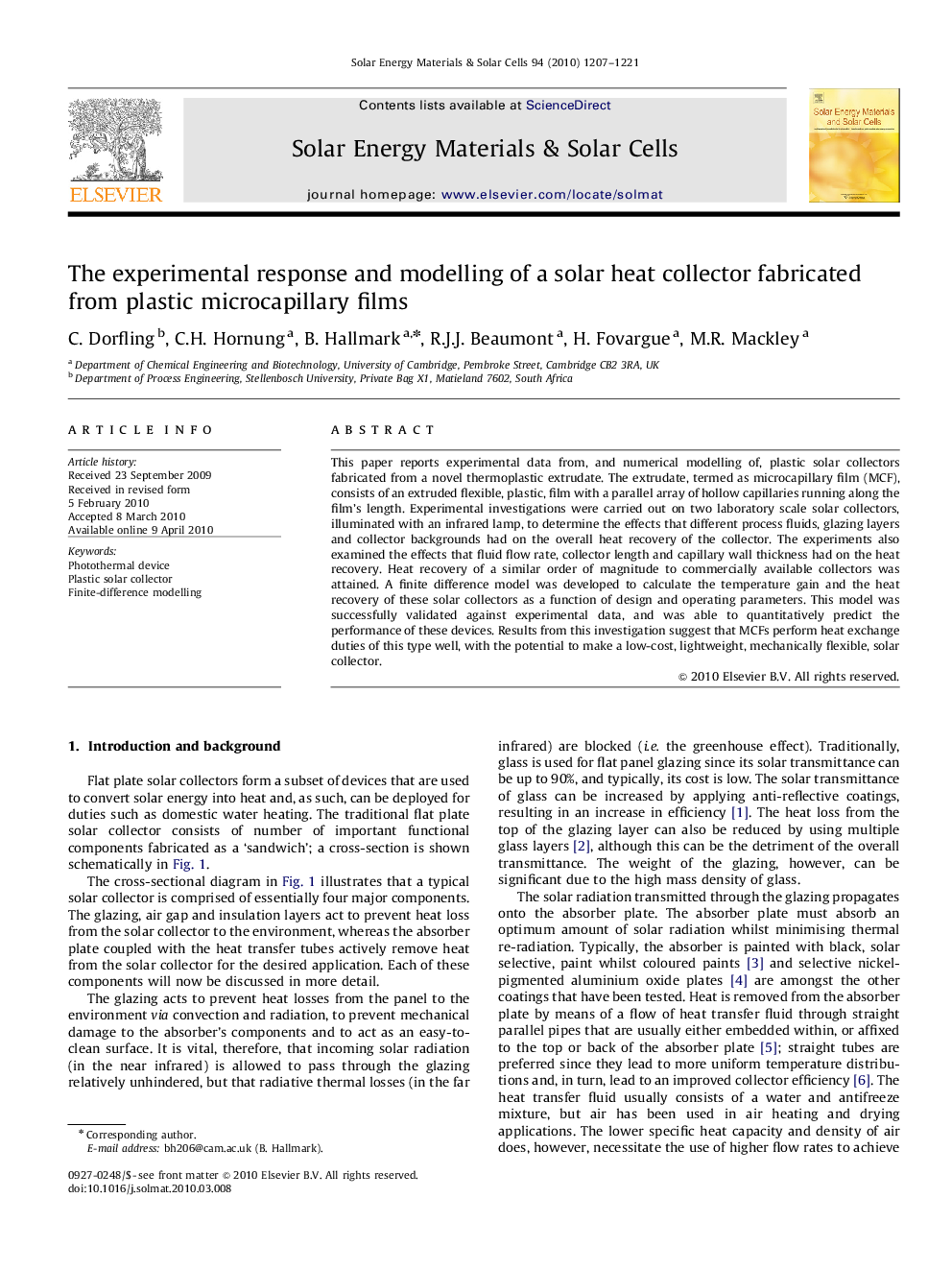| Article ID | Journal | Published Year | Pages | File Type |
|---|---|---|---|---|
| 79442 | Solar Energy Materials and Solar Cells | 2010 | 15 Pages |
This paper reports experimental data from, and numerical modelling of, plastic solar collectors fabricated from a novel thermoplastic extrudate. The extrudate, termed as microcapillary film (MCF), consists of an extruded flexible, plastic, film with a parallel array of hollow capillaries running along the film’s length. Experimental investigations were carried out on two laboratory scale solar collectors, illuminated with an infrared lamp, to determine the effects that different process fluids, glazing layers and collector backgrounds had on the overall heat recovery of the collector. The experiments also examined the effects that fluid flow rate, collector length and capillary wall thickness had on the heat recovery. Heat recovery of a similar order of magnitude to commercially available collectors was attained. A finite difference model was developed to calculate the temperature gain and the heat recovery of these solar collectors as a function of design and operating parameters. This model was successfully validated against experimental data, and was able to quantitatively predict the performance of these devices. Results from this investigation suggest that MCFs perform heat exchange duties of this type well, with the potential to make a low-cost, lightweight, mechanically flexible, solar collector.
